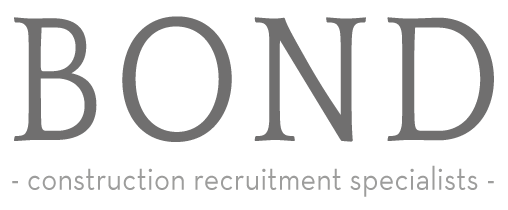When it comes to placing candidates, there is so much that happens behind the scenes.
Let’s share with you that when it comes to placing candidates there are areas that people can sometimes forget about.
While every recruiter operates in their own unique way, the process can be similar. Jack Bond, Director, explains, “For Bond Recruit, it’s a case of identifying the candidate for an employer, rather than a candidate identifying us. Initial starting places can be online media to site visits.”
“We then start to reach out to our networks and then the conversations begin. This isn’t just about the brief for the role, but qualifying what a candidate wants and where their motivation and expectations are. We’ll cover the type of project, the company, location, salary and then down to the candidate’s ambitions. It’s all part of knowing the requirements from an early stage. This part is critical as no one wants a candidate that does not fit.”
Jack highlights something that no one gets to see, but are the skills of a good recruiter. “The hidden personality and individual traits can be the difference between who gets hired and who was unsuccessful. It’s about being tuned in, on a client’s behalf, to how someone can potentially fit in. This is something that can come with experience by having that knowledge of the industry and the clients we’re working with. For instance, a company culture might thrive on fast-working, methodical people. This might not suit everyone.”
Russell Drinkwater, Director, knows that the time invested in others is what many never see. “When a candidate shares what they want, it allows us to know where they can potentially fit. No one sees the effort a consultant puts in to create a relationship with a senior management team. It can take years to be in a place to pick up the phone and have a down-to-earth chat where a candidate you have spoken to that day can be a worthy member of their construction team.”
“An intangible side that is so important is judgement. Sometimes, it doesn’t necessarily matter if a construction company is looking for a skilled site manager. If a partnership is already in place and fits the mold for a construction direction, then we’ll chat about it. A client trusts our assessment and opinion, this is a hidden side that isn’t visible for all to see.”
Jason Drinkwater, Director, recognises a side many people don’t acknowledge is a misunderstanding of how candidates think recruiters obtain roles and how clients think a recruiter sources clients. “To some businesses, they may think that all recruiters fish from the same pond. Whilst some of that is true, it depends on what fish you put into the pond. For candidates it is the understanding of what goes into building an association with a client and that we’re representing the needs of an employer as well as the commercial return for a candidate. Courtesy, manners and respect go a long way for everyone involved.”
A recruiter’s job is never straightforward but what isn’t necessarily visible comes with years of effort and know-how.
It’s not just being open about salary information, but career mapping, current construction trends, future trends and what’s happening right now on a regional and national scale.
There is so much that happens behind the scenes that others don’t see. One thing that you can’t pinpoint but becomes clear is that few people know the construction market better than a dependable recruitment team.
Perhaps now is the time to chat? Click here and let’s discuss your side and how we can help.






